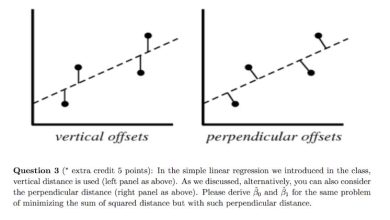Insurance for Agricultural Drone Operations: Managing Risks in Precision Farming

Precision farming is revolutionizing agriculture by leveraging advanced technologies like drones to optimize productivity and sustainability. Agricultural drones are game-changers, enabling farmers to monitor crops, map fields, and even apply fertilizers and pesticides with pinpoint accuracy. However, as these high-tech devices take flight, they bring a unique set of risks. This is where insurance for agricultural drone operations becomes essential.
In this article, we’ll explore the role of insurance in protecting agricultural drone operations, key risks involved, and how farmers can make informed choices to safeguard their investments.
Why Agricultural Drones Are Essential for Modern Farming
Agricultural drones are not just futuristic gadgets; they are indispensable tools for today’s farmers. From precision spraying to soil analysis, drones provide invaluable data that helps reduce waste, improve yields, and lower operational costs. The benefits include:
- Enhanced Crop Monitoring: Drones equipped with multispectral sensors can identify crop health issues early, preventing larger-scale damage.
- Efficient Resource Use: Precision spraying minimizes the use of fertilizers and pesticides, promoting eco-friendly farming practices.
- Field Mapping: High-resolution aerial imaging helps farmers plan irrigation systems and optimize planting patterns.
While these benefits are impressive, drone operations are not without challenges. Operational risks can result in costly damages or liabilities, making insurance for agricultural drone operations a necessity.
Understanding the Risks in Agricultural Drone Operations
Agricultural drones operate in complex environments, often over vast tracts of land. Here are some common risks associated with drone operations in farming:
- Mechanical Failures: Drones are intricate devices, and a single mechanical or software error could lead to a crash.
- Third-Party Liability: Drones flying over neighboring properties may accidentally cause damage, leading to legal disputes.
- Weather Conditions: Strong winds, rain, or extreme temperatures can disrupt drone operations and increase the likelihood of accidents.
- Data Breaches: The data collected by drones is valuable but vulnerable to cyberattacks, posing a risk to sensitive farming information.
- Regulatory Compliance: Non-compliance with aviation laws or local regulations can result in fines or legal issues.
Without adequate insurance coverage, these risks could lead to financial setbacks that outweigh the benefits of drone technology.
Key Insurance Options for Agricultural Drone Operations
To manage these risks effectively, farmers and agricultural businesses should consider comprehensive insurance plans tailored for drone operations. Here are the primary types of coverage to explore:
- Hull Insurance: Covers physical damage to the drone itself, including crashes or malfunctions.
- Liability Insurance: Protects against third-party claims for property damage or bodily injury caused by drone operations.
- Payload Insurance: Covers the equipment or sensors attached to the drone, which can be as costly as the drone itself.
- Cyber Liability Insurance: Safeguards against data breaches and hacking attempts on drone software and systems.
- Business Interruption Insurance: Provides compensation for operational losses caused by drone downtime due to covered risks.
Each of these options addresses specific aspects of drone operations, ensuring comprehensive protection for both the drone and the broader farming enterprise.
Choosing the Right Insurance for Your Agricultural Drones
Selecting the right insurance plan requires careful consideration of your farming needs and risk exposure. Here are some tips to guide you:
- Assess Your Operations: Understand the scope of your drone activities, including the type of drones used, their payload, and the size of your farmland.
- Evaluate Risk Factors: Consider location-specific risks, such as weather patterns or proximity to urban areas, which may increase liability exposure.
- Check Regulatory Requirements: Ensure your insurance policy complies with local drone regulations and aviation laws.
- Work with Specialized Providers: Choose insurance companies experienced in agricultural or drone-specific coverage for better policy customization.
- Review Policy Exclusions: Pay attention to what the policy does not cover, such as intentional damage or non-compliance with regulations.
Why Insurance Is a Smart Investment for Precision Farming
Investing in insurance for agricultural drone operations is more than a safeguard; it’s a strategic decision that supports sustainable and efficient farming. The cost of premiums is minimal compared to the potential financial losses from accidents or liabilities. Moreover, having insurance demonstrates responsibility, which can build trust with stakeholders like suppliers, clients, and regulatory bodies.
The Future of Agricultural Drones and Insurance
As drone technology continues to evolve, so will the risks and insurance needs. Innovations such as autonomous drones, AI-driven analytics, and swarm technology are poised to redefine precision farming. This progression underscores the importance of staying updated on insurance trends to ensure ongoing protection.
Farmers can also look forward to policies tailored to emerging challenges, such as coverage for AI malfunctions or damages caused by autonomous operations.
Conclusion
In the world of precision farming, agricultural drones are transforming how we cultivate the land and manage resources. However, their immense potential comes with significant risks that cannot be ignored. By investing in the right insurance for agricultural drone operations, farmers can navigate these challenges confidently and focus on reaping the benefits of this groundbreaking technology.
Whether you’re a small-scale farmer or managing a large agribusiness, don’t let unforeseen incidents ground your progress. Secure your drones and your farming future with comprehensive insurance coverage today.




